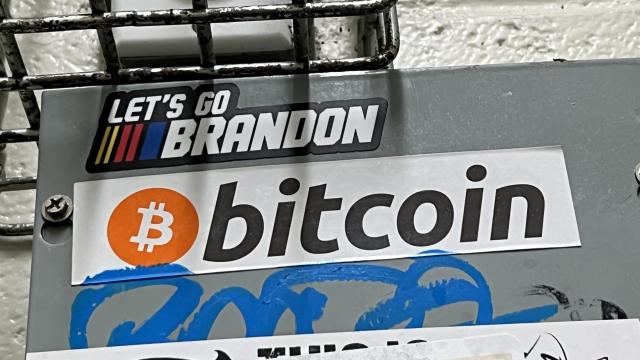Bitcoin proponents have long argued that miners moving to the U.S. can help lower the network’s carbon emissions. But a new paper out Friday finds that global shifts in the location of bitcoin miners driven by a crackdown in China last year have actually made bitcoin even dirtier. Thanks in part to fossil-fuelled grids in the U.S., bitcoin’s carbon intensity in August of last year was 17% higher than the 2020 average.
“It’s the polar opposite of what [bitcoin] supporters have been saying,” said Alex de Vries, who runs the Bitcoin Energy Consumption Index and is the lead author of the new paper, published in the journal Joule.
De Vries and his coauthors used a regularly updated map of global locations of bitcoin miners based on their IP addresses provided by the Cambridge Centre for Alternative Finance, which estimates that their map encompasses nearly half of the bitcoin network. The researchers then compared the locations of miners in the bitcoin network before last year’s crackdown to locations a few months later, in August 2021. Using data on the amounts of fossil fuels and renewables used by the grids of each location, the researchers were able to infer the types of fuels bitcoin miners were using and extrapolate a rough carbon footprint for the entire network.
China doesn’t have a particularly green grid, but when most miners were in China, de Vries explained, they were able to take advantage of abundant and extremely cheap hydropower in Sichuan and Yunnan provinces during the summer, relocating back to areas that used coal-fired power only in the winter months. The crackdown in China last year meant that that huge source of cheap renewable energy was cut off, leaving miners to look for other places for cheap, reliable electricity to power their operations. Between April and August of last year, the U.S. became the top location for global mining activity, followed by Kazakhstan and Russia.
“They don’t care so much about the environment. They care only about getting cheap and stable energy,” de Vries said. “They’ll go wherever they can to get that.”
Little details on these new grids matter. Kazakhstan, for instance, primarily uses hard coal to generate its coal-fired electricity and has inefficient coal-fired power plants, meaning it generates more emissions to create the same amount of power as countries with more efficient power plants and different types of coal. In the U.S., meanwhile, miners are increasingly flocking to Kentucky, Georgia, and Texas. These states have all encouraged bitcoin mining with tax breaks and enthusiasm from state leaders — but they also overwhelmingly use fossil fuels on their grid, meaning that bitcoin in the U.S. is increasingly relying on dirty power.
“If you look at where these miners are located within the U.S., these grids are mostly powered by natural gas,” De Vries said. “The hydropower they’d previously had access to is increasingly getting replaced with natural gas. That’s the opposite of making bitcoin more green — you’re making bitcoin more carbon-intensive by adding more fossil fuels to the network.”
A common argument bitcoin proponents make is that bitcoin mining operations help encourage the development of new energy sources, an argument de Vries dismisses as misleading.
“If you add 2 gigawatts of power demand on the Texas grid, it’s not like that additional demand is going to be supplied by renewables,” he said. “Those renewables already come first in the merit order, and whatever is going to be additional is going to come from fossil fuels. You’re not triggering more renewables — those are running — you’re triggering more fossil fuels. They need power today, they don’t need power five years from now. They’re going to use whatever is available.”
And stories that focus on single mining operations partnering with stranded nuclear assets or building their own solar farms don’t negate the fact that more fossil-fuelled power is overwhelmingly being used to supply this new demand.
“I sometimes feel a little gaslit by the [bitcoin] proponents,” de Vries said. “They’re saying stuff that just doesn’t add up, which is frustrating because it takes a lot of time to debunk that. The fact that bitcoin miners moved to the U.S. — they’ve [been] using that for months to say, oh this is great for renewables in the bitcoin network. It just takes so many months to counter such a claim with proper research.”
